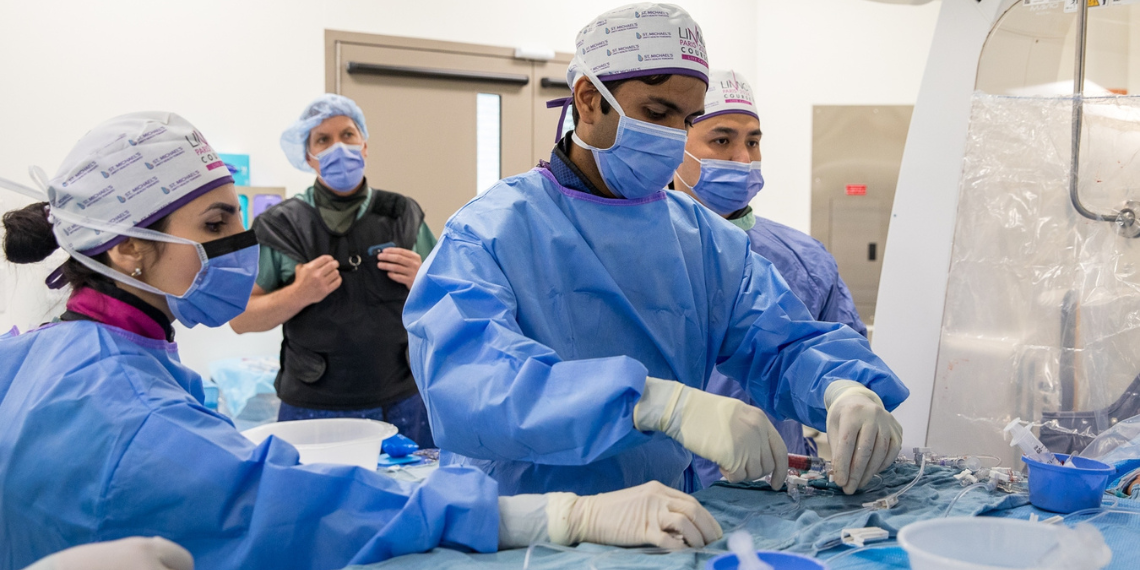
From Bio-Medical Science
to Neurosurgery:
Dr. Zamir Merali's Journey
I wrote a profile on Dr. Zamir Merali, a staff neurosurgeon at Trillium Health Partners and a graduate of the University of Guelph’s Bio-Medical Science program, for the College of Biological Science’s website and social media.
Read my profile below ↓
When he first applied to the University of Guelph, Dr. Zamir Merali (BSc' 12) wanted to pursue a career in veterinary medicine. He had an early interest in biology and developed a passion for medicine after a high school co-op at a veterinary clinic, where he observed surgeries.
After starting his Bio-Medical Science degree at U of G, Merali's interest in human medicine grew. "I became interested in medicine because I wanted to directly apply science to real-world situations, and that's how I decided that I would apply to medical school part-way through my undergrad degree at U of G," he says.
Now a staff neurosurgeon at Trillium Health Partners in Mississauga, Merali's undergraduate experience at the University of Guelph prepared him well for medical school at the University of Toronto. Much of the medical school coursework, which typically includes two pre-clinical years followed by two years of practical placements, was very similar to what he had already studied at U of G. "A lot of the medical school coursework was honestly just a repetition of what I did at U of G," he says.
As part of the Bio-Med program, Merali dissected human cadavers in the Human Anatomy Lab, an opportunity few undergraduate students in Canada have.
In the Human Anatomy Lab, "you're leaving the textbook and going more into the actual hands-on work. That would be comparable to what a medical school would be like," he says. "The best part of that course was working with your classmates. It was a small group that we worked with throughout the year, and everyone was interested in medicine."
Merali completed his neurosurgery residency at U of T, where he decided to focus on clinical practice over academic research. He joined Trillium Health Partners, a large hospital with six neurosurgeons serving a population of over two million people, for its strong clinical practice, allowing him to concentrate on patient care.
His subspecialty interests in neurosurgery include neuro-oncology and neurovascular conditions, such as brain tumours, spinal tumours, strokes, brain aneurysms, and vascular malformations. Trillium allowed him to specialize in these areas and take on significant responsibilities in treating these conditions. Additionally, Merali and his family's ties to the area influenced his decision to join Trillium.
Merali's practice at Trillium Health Partners is divided between elective and emergency neurosurgeries. On the elective side, he treats conditions such as brain tumours, spinal conditions, and vascular malformations. In terms of emergency neurosurgery, he handles cases involving trauma, brain bleeds, and urgent presentations of brain tumours. While he is involved in various aspects of neurosurgery, most of his practice focuses on neuro-oncology and vascular conditions.
Neurosurgeons in Canada typically perform anywhere from 150 to 600 surgeries annually. Merali's practice, particularly with the inclusion of vascular conditions, is on the higher end of this range, with around 500 cases per year.
"Although it's a lot of training and not the easiest choice that you could make as an undergrad, I would say that medicine is still a very, very rewarding career," he says. "I would encourage students to pursue it if they have that interest."

